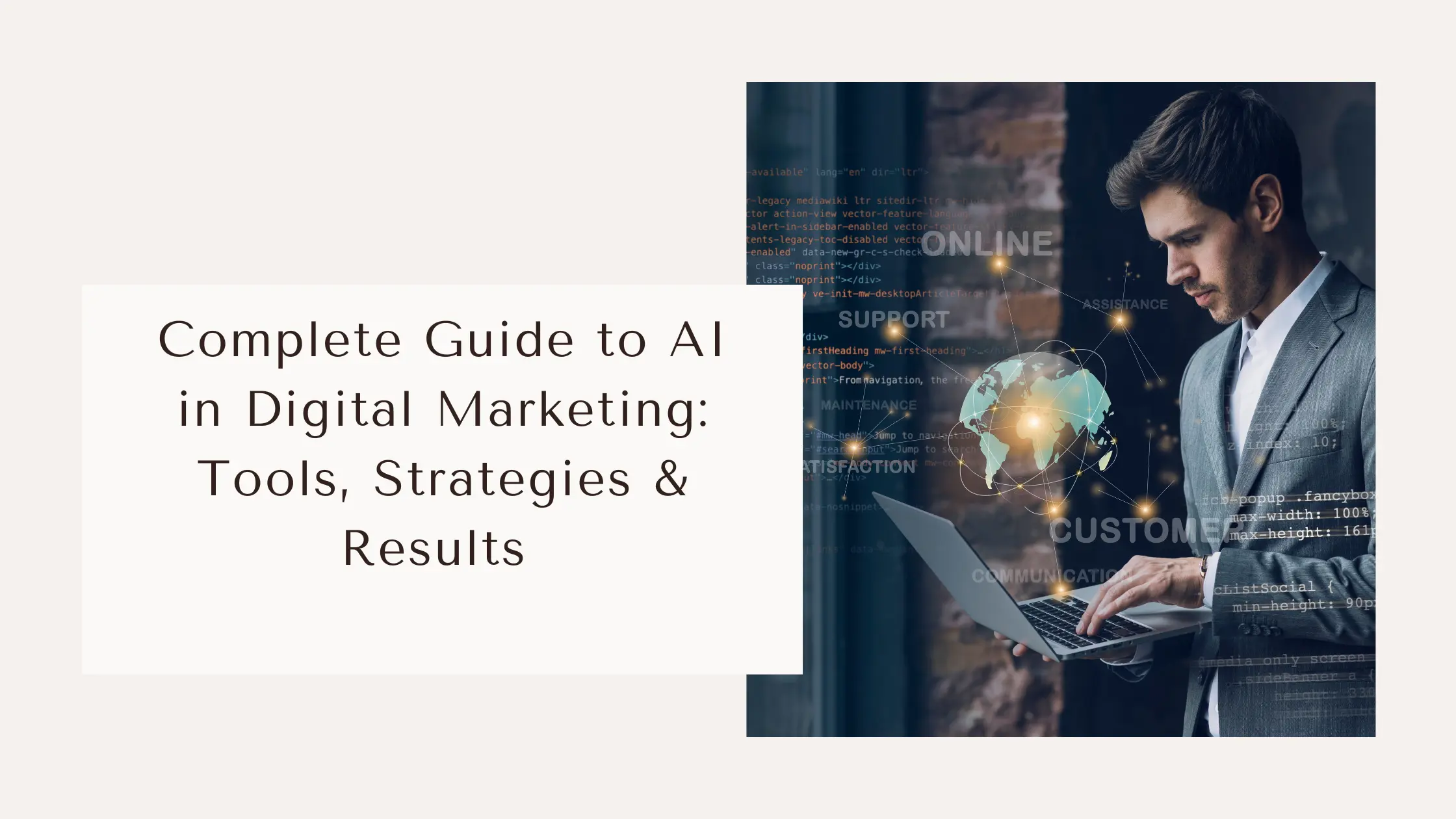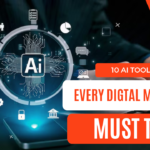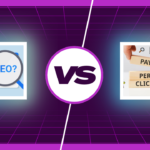
Complete Guide to AI in Digital Marketing: Tools, Strategies & Results
- Zerototop
- June 23, 2025
- Digital Marketing
- AI In Digital Marketing, Digital Marketing
- 9 Comments
In the rapidly evolving landscape of digital marketing, Artificial Intelligence (AI) is no longer a futuristic concept but a present-day imperative. From automating mundane tasks to delivering hyper-personalized customer experiences, AI is fundamentally reshaping how businesses connect with their audiences and drive growth. Ignoring its potential is no longer an option; embracing AI is the key to staying competitive and unlocking new levels of efficiency and effectiveness.
This comprehensive guide will demystify AI in digital marketing, exploring its core applications, highlighting essential tools, outlining strategic approaches, and demonstrating the tangible results you can expect. Whether you’re a seasoned marketing professional or a small business owner, prepare to discover how AI can revolutionize your digital marketing efforts.
What is AI in Digital Marketing?
At its core, AI in digital marketing refers to the application of artificial intelligence technologies such as machine learning, natural language processing (NLP), and predictive analytics to enhance, automate, and optimize marketing tasks and decision-making. Instead of purely manual processes, AI allows marketers to leverage vast amounts of data to gain insights, personalize interactions, and execute campaigns with unprecedented precision and scale.
Why is this important now?
The digital world is awash with data. Customers interact with brands across countless touchpoints, generating immense volumes of information. Traditional methods struggle to process and derive meaningful insights from this data efficiently. AI steps in as the ultimate data processor and analyst, enabling marketers to:
- Understand customer behavior at a granular level.
- Predict future trends and customer needs.
- Automate repetitive tasks, freeing up human creativity.
- Deliver highly personalized experiences at scale.
- Optimize campaigns for maximum ROI in real-time.
In essence, AI allows marketers to move beyond guesswork, making data-driven decisions that lead to superior results.
Key Areas Where AI is Transforming Digital Marketing
AI’s influence spans almost every facet of digital marketing. Here’s a breakdown of the key areas where it’s making the most significant impact:
Personalization with AI
Gone are the days of one-size-fits-all marketing. Today’s consumers expect tailored experiences. AI enables hyper-personalization by analyzing individual preferences, Browse history, purchase behavior, and demographics to deliver highly relevant content, product recommendations, and offers.
Dynamic Content: Websites and emails can dynamically adjust their content based on a user’s profile and real-time behavior. Personalized Product Recommendations: E-commerce giants like Amazon and Netflix use AI to suggest products or content users are most likely to enjoy, driving significant engagement and sales. Tailored Email Campaigns: AI optimizes email send times, subject lines, and content to resonate with individual recipients, boosting open and click-through rates.
AI-Powered Content Creation
The demand for fresh, engaging content is insatiable. AI-powered content generation tools are revolutionizing this by assisting marketers in creating high-quality text, images, and even videos at scale.
Automated Copywriting: AI can generate blog post outlines, ad copy, social media captions, product descriptions, and email drafts. While human oversight remains crucial for brand voice and nuance, AI dramatically speeds up the initial drafting process. Content Optimization: AI tools analyze content for SEO effectiveness, readability, and engagement, suggesting improvements to help it perform better in search results and with audiences. Generative AI for Visuals: Advanced AI models can create unique images, illustrations, and even short video clips from text prompts, expanding creative possibilities.
Predictive Analytics in Marketing
AI’s ability to analyze historical data and identify patterns makes predictive analytics a game-changer for marketers. This allows businesses to anticipate future trends, customer behaviors, and market shifts.
Customer Lifetime Value (CLTV) Prediction: Identify high-value customers and tailor strategies to maximize their long-term engagement. Sales Forecasting: Accurately predict future sales based on various data points, aiding inventory and marketing budget planning.
Instant Customer Support: Chatbots can answer FAQs, troubleshoot common issues, and guide users through processes, reducing the burden on human support teams. Lead Qualification: Chatbots can engage website visitors, ask qualifying questions, and direct promising leads to sales representatives. Personalized Recommendations: Conversational AI can recommend products or services based on user queries and preferences within a chat interface.
AI for SEO
Search Engine Optimization (SEO) is becoming increasingly complex, but AI tools are helping marketers navigate this landscape with greater efficiency and insight.
Keyword Research & Analysis: AI can identify high-performing keywords, analyze competitor strategies, and uncover semantic relationships to build comprehensive content strategies. Content Optimization: Tools leverage AI to analyze content against top-ranking pages, recommending optimal content length, keyword density, and related topics. Voice Search Optimization: As voice search grows, AI helps identify and optimize for natural language queries. Technical SEO Audits: AI can quickly scan websites for technical issues affecting SEO performance, such as broken links, crawl errors, and site speed.
AI in Advertising
Programmatic advertising, driven by AI, has revolutionized how ads are bought, sold, and optimized, leading to more efficient spend and better targeting.
Real-time Bidding (RTB): AI algorithms automatically bid on ad impressions in real-time, ensuring ads are shown to the most relevant audience segments at the optimal price. Audience Targeting: AI analyzes vast user data to identify precise audience segments, enabling hyper-targeted ad campaigns across various platforms (e.g., social media, display networks). Ad Creative Optimization: AI can test different ad variations (headlines, images, CTAs) and identify the highest-performing combinations, dynamically adjusting campaigns for better results. Budget Optimization: AI continuously monitors campaign performance and allocates budget to the most effective channels and ad creatives.
Marketing Automation with AI
While marketing automation has existed for years, AI supercharges it by adding intelligence and adaptive capabilities.
Smart Workflow Automation: AI can trigger automated email sequences, personalized messages, and other actions based on complex user behaviors and predictions.


fun88apk
Just downloaded the Fun88 app from fun88apk.info. Seems legit so far. Mobile gaming experience is on point. Hopefully I can win something while I’m on the go! Get the app here: fun88apk
87club
I spent some hours in 87club. It worked fine for me. Seems good to me! Jump into the game at 87club
567win1
Just tried my luck at 567win1 and had a blast. Graphics are sharp and the payouts seem fair. Gotta love a site that feels straightforward. Check it out 567win1 for some fun!
gamewin33
Yo, gamewin33 is giving some nice vibes! The selection of games is pretty good and I’ve had some luck there. Give it a spin if you’re feeling lucky! Check it out: gamewin33
jl56slot
What’s up? Gave jl56slot a try and they got some cool stuff. The user interface could use some work, but it’s not a dealbreaker. The games themselves are fun. Jump in: jl56slot
ig88login
Alright, trying out ig88login. Pretty straightforward. Loads up quick and has a decent selection of games. Not bad at all. Find it here: ig88login
ganabetsportium.net
I’ve been using Ganabetsportium for a month now, and it’s been a great experience! Interface is super friendly, and the odds are fair. If you are into sports betting, this one is great. ganabetsportium
hindubetapp
Hindubetapp, downloading this to check if my luck improves. Let’s hope for only good results! You can access the homepage here hindubetapp
mdmbetyono
Anyone tried mdmbetyono yet? Keep seeing it pop up. Thinking about giving it a shot but wanna hear some real opinions first. Anyone got the inside scoop? Check it out if you dare: mdmbetyono